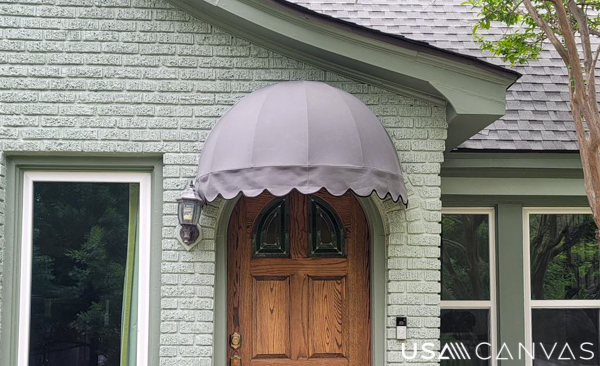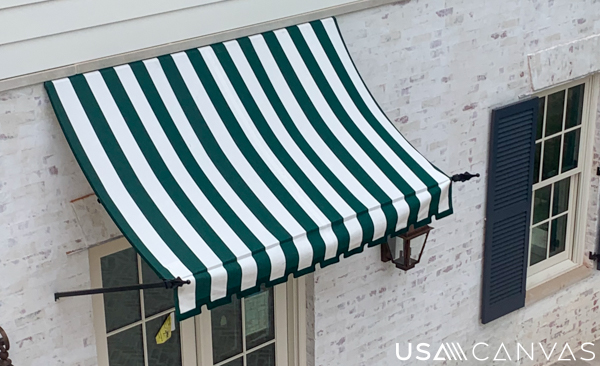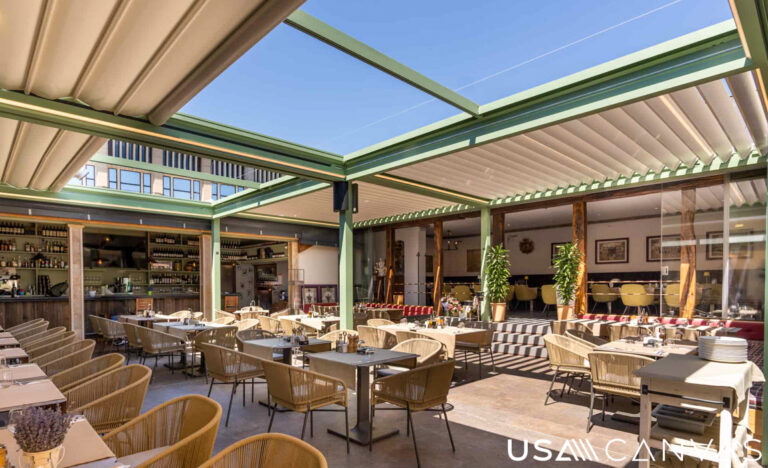Looking for custom awnings, awning repairs or awning recovers in Dallas, TX? USA Canvas can do all of that. A fabric awning will bring a classic, time-proven look to any façade. While there is a variety of shapes, fabrics & designs the fabric awning can serve many purposes; it can provide sunshade to the windows below, protection from rain or hail, embellish storefronts and homes, and double as signage with the addition of custom graphics. A decorative valance can be added in a variety of styles and piping.
Our fabric awnings are custom designed, cut and sewn in our Dallas shop using Sunbrella fabric (other brands & materials; check out the resources section for all the available colors, patterns, and valance designs.








